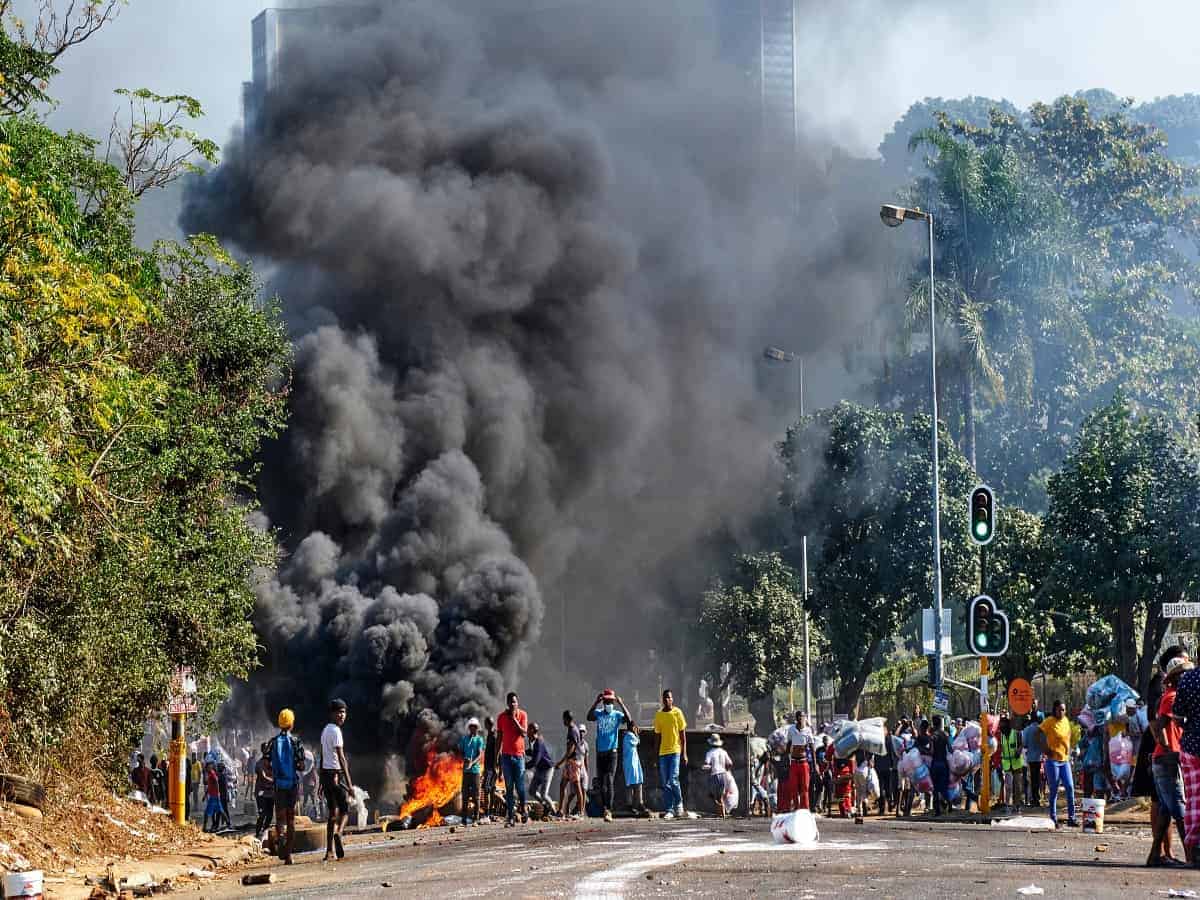Johannesburg: The rioting that erupted in parts of South Africa in July over former President Jacob Zuma’s imprisonment caused damage worth USD 1.7 billion (25 billion rand), according to the state insurance company handling the claims.
More than 300 people died and more than 200 shopping centers were looted in the KwaZulu Natal and Gauteng provinces when rioters ransacked shops and stole groceries, liquor, electrical appliances and clothes, according to official figures. Factories and warehouses were also robbed and burned.
The unrest damaged South Africa’s economy with freight trucks burned in KwaZulu-Natal, shutting key highways used to ferry goods from Indian Ocean ports to the other parts of the country.
Sasria, South Africa’s government insurance company that covers special risks like public disorder, riots and terrorism is now seeking funds from President Cyril Ramaphosa’s government to cover all the claims from businesses and individuals who suffered damages during the riots.
According to Sasria, South Africa’s riots were among the most expensive in the world in the last 10 years, surpassing damages caused in riots in various US states over the killing of George Floyd in 2020, which cost an estimated USD 1.5 billion in damages.
Sasria executives addressed the country’s Parliament on Wednesday, and asked for a financial bailout from state coffers to cover the shortfall it will face in settling all claims.
The unrest was triggered by Zuma’s arrest for refusing to comply with a Constitutional Court order to testify at a state-backed inquiry investigating corruption allegations during his presidential term from 2009 to 2018.
Zuma was sentenced to 15 months imprisonment but this past weekend he was placed on medical parole after spending two months at the Estcourt Correctional Center, where he was mostly housed in the prison’s medical wing.
Zuma’s corruption trial, where he is accused of receiving bribes from French arms manufacturer Thales during the country’s controversial purchase of arms in 1999, has been postponed to September 20 by mutual consent between state lawyers and his defense team.

